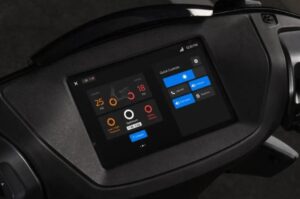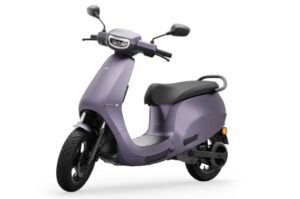
Maharashtra EV Policy 2021 has recently been announced, and it comes with a host of benefits for those who want to switch to electric vehicles. From an increase in subsidies to a significant reduction in the prices of EVs, the policy aims to encourage more people to adopt this environmentally-friendly mode of transportation.
Key Features of the Maharashtra Electric Vehicle Policy
The Maharashtra Electric Vehicle Policy has several key features that are designed to encourage the adoption of electric vehicles in the state. These features include:
Subsidies and Incentives: The policy offers several subsidies and incentives to those who purchase EVs. The increase in subsidies means that buyers can now receive up to Rs. 5 lakhs in incentives, depending on the battery size in their EV. Additionally, the state government has waived road tax and registration fees for the first 200,000 electric two-wheelers and the first 100,000 electric three-wheelers purchased in the state.
You May Like: Which Battery is Used in Electric Vehicle
Charging Infrastructure: The policy emphasizes the creation of a robust charging infrastructure across the state. The aim is to set up at least one charging station within a radius of 25 km on both sides of the highways and expressways. Additionally, the state government has mandated the installation of at least one charging station in all new residential and commercial buildings.
Price Reductions: The policy aims to reduce the prices of EVs significantly. The target is to achieve a price reduction of at least Rs. 5,000 per kWh by 2025. This reduction in prices will make EVs more affordable for the average consumer, thereby encouraging more people to switch to electric vehicles.
Skill Development: The policy includes skill development programs for EV-related jobs. The government will provide training and support for EV-related jobs to ensure that there are enough skilled workers to support the growth of the EV industry in Maharashtra.
Research and Development: The policy encourages research and development in the EV sector. The state government will provide funding for research and development activities related to electric vehicles.
The Benefits of the Maharashtra Electric Vehicle Policy
The Maharashtra Electric Vehicle Policy offers several benefits that can positively impact the state’s environment, economy, and society. Here are some of the key benefits of the policy:
Reduced Pollution: Electric vehicles produce zero tailpipe emissions, which means they do not contribute to air pollution. By encouraging the adoption of EVs, the policy can significantly reduce pollution levels in the state and improve air quality.
Cost Savings: The subsidies and incentives offered by the policy make EVs more affordable for consumers. EVs are also cheaper to maintain and operate than petrol/diesel vehicles. This can result in significant cost savings for vehicle owners in the long run.
Job Creation: The policy includes skill development programs for EV-related jobs. This can create new job opportunities in the EV industry and contribute to the state’s overall economic growth.
Energy Security: The policy aims to reduce the state’s dependence on imported oil by promoting the use of electric vehicles. This can improve energy security and reduce the impact of oil price fluctuations on the state’s economy.
Reduced Noise Pollution: Electric vehicles produce less noise than petrol/diesel vehicles. By promoting the adoption of EVs, the policy can help to reduce noise pollution in the state.
Increased Renewable Energy Integration: The policy emphasizes the creation of a robust charging infrastructure across the state. This infrastructure can be powered by renewable energy sources such as solar and wind power. By integrating renewable energy into the charging infrastructure, the policy can help to promote the use of clean energy in the state.
Maharashtra EV Policy 2021: Gigafactory planned, Push for Electrifying Public Transport
The Maharashtra Electric Vehicle Policy 2021 has several measures aimed at promoting the use of electric vehicles in the state. One of the key initiatives is the plan to set up a “Gigafactory” for manufacturing lithium-ion batteries. This factory will be set up in collaboration with a private partner and will help to reduce the cost of manufacturing batteries in India, making electric vehicles more affordable for consumers.
Another important aspect of the policy is the focus on electrifying public transport. The state government plans to convert all public transport vehicles to electric vehicles by 2030. This includes buses, taxis, and other modes of public transport. To encourage the adoption of electric vehicles in the public transport sector, the government is offering incentives and subsidies to fleet owners who switch to electric vehicles.
Additionally, the state government is working on setting up a network of charging stations across the state. This will help to ensure that EV owners have access to charging infrastructure wherever they go, making it easier to own and operate an electric vehicle in Maharashtra.
Subsidy for Electric Cars and SUVs
The Maharashtra Electric Vehicle Policy 2021 offers several incentives and subsidies to encourage the adoption of electric vehicles in the state. One of the key initiatives is the provision of subsidies for electric cars and SUVs. Buyers of electric cars and SUVs with a battery size of up to 15 kWh are eligible for a subsidy of up to Rs. 1.5 lakh, while those with a battery size of more than 15 kWh are eligible for a subsidy of up to Rs. 5 lakhs.
This subsidy is intended to make electric vehicles more affordable for consumers and to encourage more people to switch to electric vehicles. Additionally, the state government has waived road tax and registration fees for the first 200,000 electric two-wheelers and the first 100,000 electric three-wheelers purchased in the state.
To further promote the adoption of electric vehicles, the policy also aims to reduce the prices of electric vehicles. The target is to achieve a price reduction of at least Rs. 5,000 per kWh by 2025. This will make electric vehicles more accessible and affordable for the average consumer.
Subsidy for Electric Two-Wheelers
The Maharashtra Electric Vehicle Policy 2021 offers several incentives and subsidies to encourage the adoption of electric vehicles in the state. One of the key initiatives is the provision of subsidies for electric two-wheelers. Under the policy, the state government has waived road tax and registration fees for the first 200,000 electric two-wheelers purchased in the state.
Additionally, buyers of electric two-wheelers with a battery size of up to 5 kWh are eligible for a subsidy of up to Rs. 5,000, while those with a battery size of more than 5 kWh are eligible for a subsidy of up to Rs. 10,000.
These subsidies are intended to make electric two-wheelers more affordable for consumers and to encourage more people to switch to electric two-wheelers. This is important because two-wheelers are a popular mode of transport in Maharashtra, and their widespread adoption can help to reduce air pollution and improve public health.
To further promote the adoption of electric two-wheelers, the policy aims to increase the number of charging stations in the state. The government plans to set up at least one charging station every 25 km on all major highways, and also in urban and semi-urban areas.
Conclusion:
The Maharashtra EV Policy 2021 is a significant step towards the adoption of electric vehicles in the state. The increase in subsidies, emphasis on charging infrastructure, and price reductions are all positive steps that will encourage more people to make the switch to electric vehicles. With these measures in place, we can expect to see a significant increase in the number of EVs on Maharashtra’s roads in the coming years.
Read Next Blog:
How to Apply for Electric Vehicle Subsidy in Haryana






